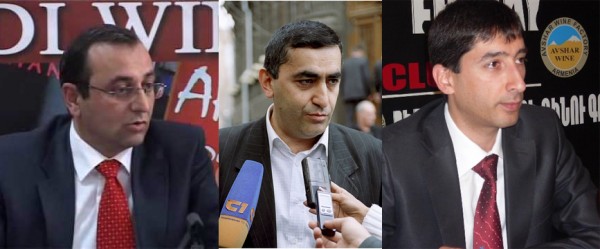10 July 2010 – In an interview with “Capital,” Ara Nranyan, a parliament deputy from the opposition Armenian Revolutionary Federation (Dashnaktsutyun) and a member of the ARF-D Supreme Council of Armenia , criticizes the ongoing reform of Armenia’s pension system initiated by the government. “A model of a backward country is being built in Armenia,” he claims. “Armenia is presenting itself to the world as a resource, as a country exporting raw materials and workforce. As a result of the pension reforms, impoverished Armenia will become a third raw material for developed markets: a country exporting money … The proposed [pension] system has not been introduced in any developed country, while the experience of a few developing countries does not inspire any optimism.”
09 July 2010 – Armen Rustamyan, chairman of the Armenian Revolutionary Federation (Dashnaktsutyun) Supreme Council of Armenia, assures “Aravot” that there is no “crisis” yet in Armenia’s relations with the Council of Europe’s Parliamentary Assembly (PACE). “But it is obvious that there are impending dangers [for Armenia,]” he says. Rustamyan, who is a member of the Armenian parliamentary delegation at the PACE, argues that the assembly’s Monitoring Committee has yet to hold a “full-fledged discussion” of outstanding issues regarding Armenia’s compliance with PACE resolutions. While criticizing the Armenian authorities’ “shortcomings,” Rustamyan does not confirm nor deny that Armenian opposition members remaining in jail are political prisoners, saying that so long as the law contains provisions according to which people can be imprisoned for their political acts, this argument will continue.
02 July 2010 – Interviewed by “Iravunk de facto,” Ara Nranyan criticizes the Armenian government’s “neo-liberal” economic policies. Nranian says the government is eager to protect only the interests of employees, rather than working people.
01 July 2010 – Giro Manoyan, a senior member of the Armenian Revolutionary Federation (Dashnaktsutyun), tells “Hraparak” that there is no direct connection between U.S. Secretary of State Hillary Clinton’s visit to the region and the weekend statement on the Karabakh conflict issued by the U.S., Russian and French presidents. “But it is clear that in both Armenia and Azerbaijan Clinton will negotiate along the lines of that statement,” says Manoyan.
30 June 2010 – “No matter how much our government praises that 8.8 percent economic growth, it is obvious that it is based on two external factors,” Artsvik Minasyan, a parliament deputy from the Armenian Revolutionary Federation-Dashnaktsutyun, tells “Capital.” “The first one is the mining industry. When we export raw materials and their prices go up in the international market, that leads to growth in this sector, which is not a sign of a healthy and efficient economy. The second growth factor is a pickup of the world economy, which has somewhat contributed to a rise in cash remittances.”








